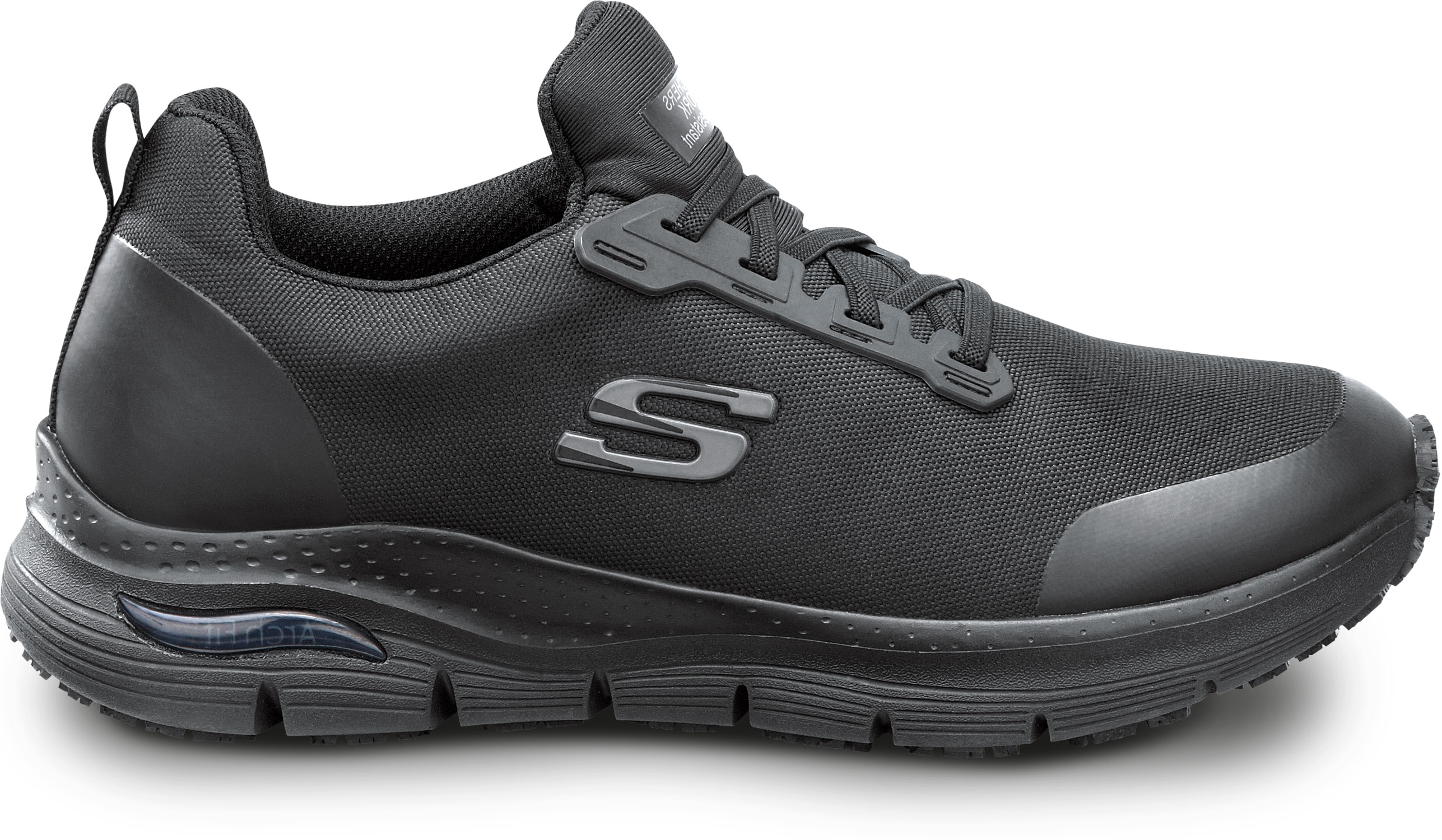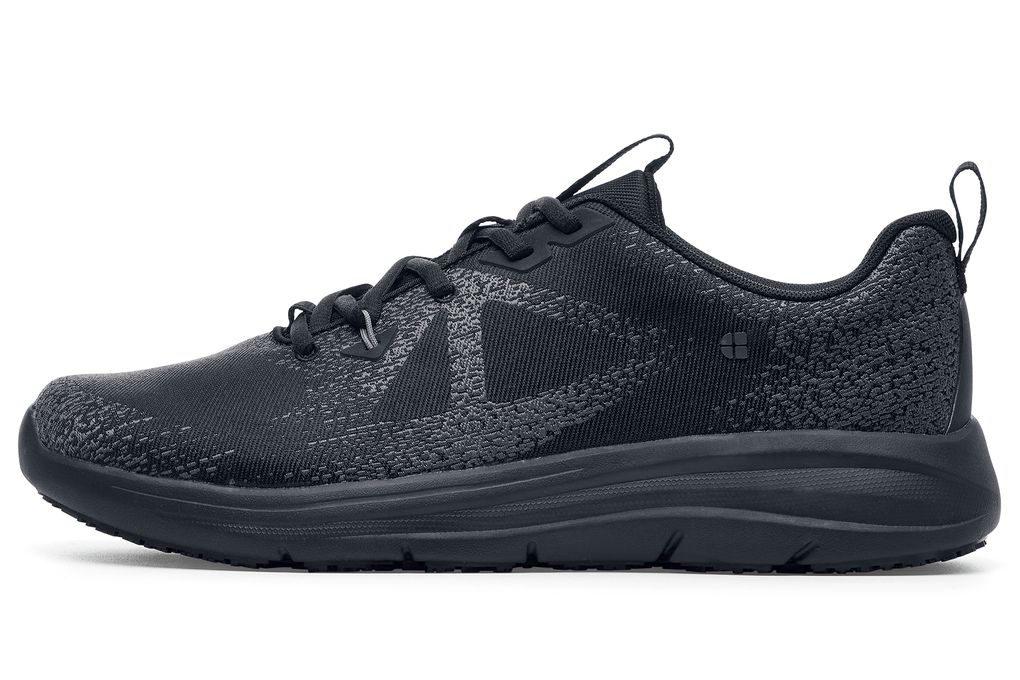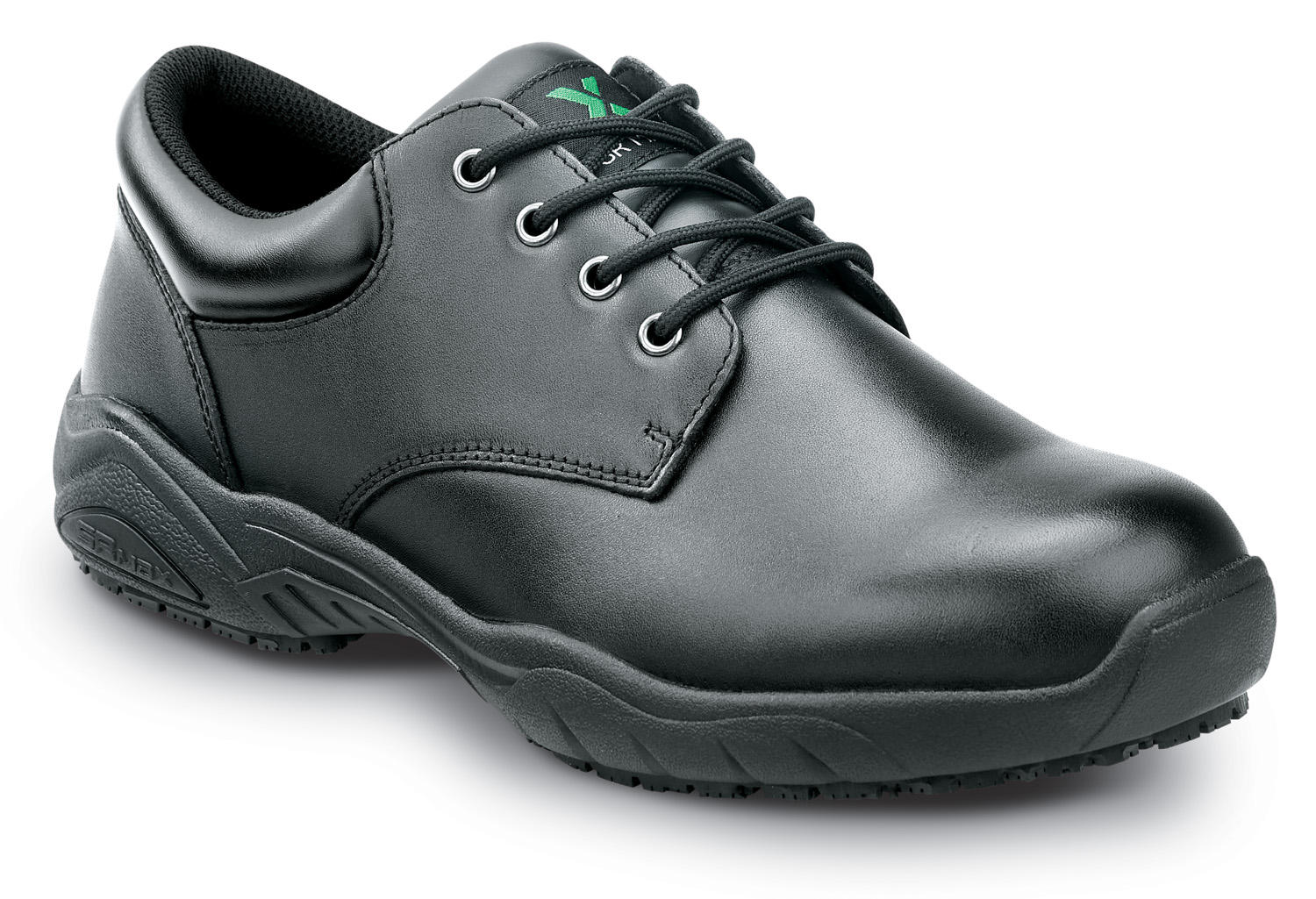Why Slip-Resistant Shoes Matter in the Workplace
In various industries, slips, trips, and falls are a major concern, resulting in injuries, lost productivity, and significant financial losses. According to the Bureau of Labor Statistics, in 2020, slips, trips, and falls accounted for over 200,000 nonfatal injuries in the United States alone. The importance of slip-resistant shoes in preventing these accidents cannot be overstated. In healthcare, for instance, slip-resistant shoes can help prevent falls and injuries, ensuring that medical professionals can focus on providing quality care to patients. In the food service industry, slip-resistant shoes can reduce the risk of slips and falls in kitchens, where greasy floors and uneven surfaces are common. Similarly, in construction, slip-resistant shoes can provide traction on oily or wet surfaces, reducing the risk of accidents. By wearing all black slip resistant shoes, workers can significantly reduce the risk of slips, trips, and falls, creating a safer working environment. In fact, many employers now require their employees to wear slip-resistant shoes as part of their overall safety protocols. With the right footwear, workers can focus on their tasks with confidence, knowing that their shoes have got their backs.
What Makes a Shoe Slip-Resistant?
Slip-resistant shoes are designed to provide traction on various surfaces, reducing the risk of slips, trips, and falls. But what makes a shoe slip-resistant? The answer lies in the combination of materials, tread patterns, and sole designs used in their construction. The outsole, the part of the shoe that comes into contact with the ground, is typically made from a specialized rubber compound that provides grip on slippery surfaces. This compound is often mixed with additives such as silica or alumina to enhance its traction properties. The tread pattern is also critical, with deep grooves and lugs that channel water and debris away from the foot, allowing for better contact with the ground. Some slip-resistant shoes feature unique sole designs, such as those with built-up heels or toe caps, which provide additional traction and support. When shopping for all black slip resistant shoes, look for shoes with these features, as they can make all the difference in preventing accidents. By understanding what makes a shoe slip-resistant, workers can make informed decisions when selecting the right footwear for their job, ensuring a safer working environment.
How to Choose the Right Slip-Resistant Shoes for Your Job
Selecting the right slip-resistant shoes for your job can be a daunting task, especially with the numerous options available in the market. However, by considering a few key factors, workers can make an informed decision that ensures their safety and comfort on the job. First, it’s essential to consider the job requirements and work environment. For instance, workers in the food service industry may require shoes with a higher level of slip resistance due to the greasy floors, while those in the construction industry may need shoes with added ankle support and protection. Personal comfort is also a crucial factor, as shoes that are uncomfortable can lead to distractions and decreased productivity. When shopping for all black slip resistant shoes, look for shoes that meet the specific requirements of your job and provide the necessary comfort and support. Additionally, consider the brand reputation, quality of materials, and durability of the shoes. By taking these factors into account, workers can choose the right slip-resistant shoes for their job, ensuring a safer and more comfortable working environment.
Top Picks: All-Black Slip-Resistant Shoes for Men and Women
When it comes to all black slip resistant shoes, there are several top-rated options available in the market. Here, we’ll review and compare some of the best all black slip resistant shoes from renowned brands like Dr. Martens, Timberland, and New Balance. Dr. Martens’ Ironbridge shoe is a popular choice among workers, featuring a rugged outsole and a comfortable, breathable upper. Timberland’s PRO Boondock shoe is another top pick, boasting a durable design and exceptional slip resistance. New Balance’s 626v2 shoe is a great option for those who require a more athletic fit, with a supportive midfoot and a grippy outsole. All of these shoes are designed to provide excellent traction on various surfaces, making them ideal for workers in industries such as construction, manufacturing, and food service. When shopping for all black slip resistant shoes, consider factors such as comfort, durability, and slip resistance to ensure you find the right shoe for your job. By investing in a high-quality pair of all black slip resistant shoes, workers can reduce the risk of slips, trips, and falls, and step into safety with confidence.
The Benefits of All-Black Slip-Resistant Shoes
All black slip resistant shoes offer a range of benefits that make them an ideal choice for workers in various industries. One of the primary advantages of all black slip resistant shoes is their versatility. They can be easily paired with different work uniforms and are suitable for a variety of work environments. Additionally, all black slip resistant shoes are often easier to maintain than shoes with bright colors or intricate designs, as they can be easily cleaned and do not show stains or dirt as easily. This makes them a practical choice for workers who are on their feet all day. Furthermore, all black slip resistant shoes are often more professional in appearance, making them suitable for industries such as healthcare and food service where a more formal attire is required. By investing in a pair of all black slip resistant shoes, workers can enjoy the peace of mind that comes with knowing they are protected from slips, trips, and falls, while also benefiting from the convenience and practicality of a low-maintenance, versatile shoe.
Slip-Resistant Shoes vs. Regular Shoes: What’s the Difference?
When it comes to footwear, not all shoes are created equal. Slip-resistant shoes are specifically designed to provide traction and prevent slips, trips, and falls, making them a crucial component of workplace safety. In contrast, regular shoes are designed for everyday wear and may not provide the same level of protection. One of the main differences between slip-resistant shoes and regular shoes is the materials used. Slip-resistant shoes often feature rubber or synthetic outsoles with unique tread patterns and lug designs that grip different surfaces, whereas regular shoes may have smoother, less aggressive outsoles. Additionally, slip-resistant shoes are often made with more durable materials and are built to withstand the demands of a work environment. Another key difference is the level of traction provided. Slip-resistant shoes are designed to provide superior grip on slippery surfaces, such as oil, water, or ice, whereas regular shoes may not offer the same level of traction. By choosing all black slip resistant shoes, workers can enjoy the benefits of a stylish, low-maintenance shoe that also provides the protection they need to stay safe on the job.
Slip-Resistant Shoes for Specific Industries: A Closer Look
Different industries have unique requirements when it comes to slip-resistant shoes. For example, in the healthcare industry, slip-resistant shoes need to be able to withstand the demands of a fast-paced environment while also meeting strict hygiene standards. In this case, all black slip resistant shoes with antimicrobial properties and easy-to-clean designs are ideal. In the food service industry, slip-resistant shoes need to be able to grip slippery floors and withstand the heat of a commercial kitchen. Shoes with heat-resistant outsoles and breathable uppers are well-suited for this environment. In the construction industry, slip-resistant shoes need to be able to provide traction on uneven terrain and withstand the rigors of heavy labor. Shoes with rugged outsoles and ankle support are ideal for this industry. By understanding the specific demands of each industry, workers can choose the right slip-resistant shoes for their job, ensuring they stay safe and protected on the job. Whether it’s all black slip resistant shoes or shoes with specific features, there’s a slip-resistant shoe option available to meet the unique needs of each industry.
Conclusion: Step into Safety with Confidence
In conclusion, slip-resistant shoes are a crucial component of workplace safety, providing protection against slips, trips, and falls. By understanding the importance of slip-resistant shoes, the key features that make a shoe slip-resistant, and how to choose the right shoe for their job, workers can take a proactive approach to safety. The benefits of all black slip resistant shoes, including their versatility and ease of maintenance, make them a popular choice for many industries. Whether working in healthcare, food service, construction, or another industry, there’s an all black slip resistant shoe option available to meet specific needs. By prioritizing safety and investing in a good pair of slip-resistant shoes, workers can step into safety with confidence, knowing they’re protected from the risks of slips, trips, and falls. Remember, safety starts from the ground up, and the right pair of all black slip resistant shoes can make all the difference.







